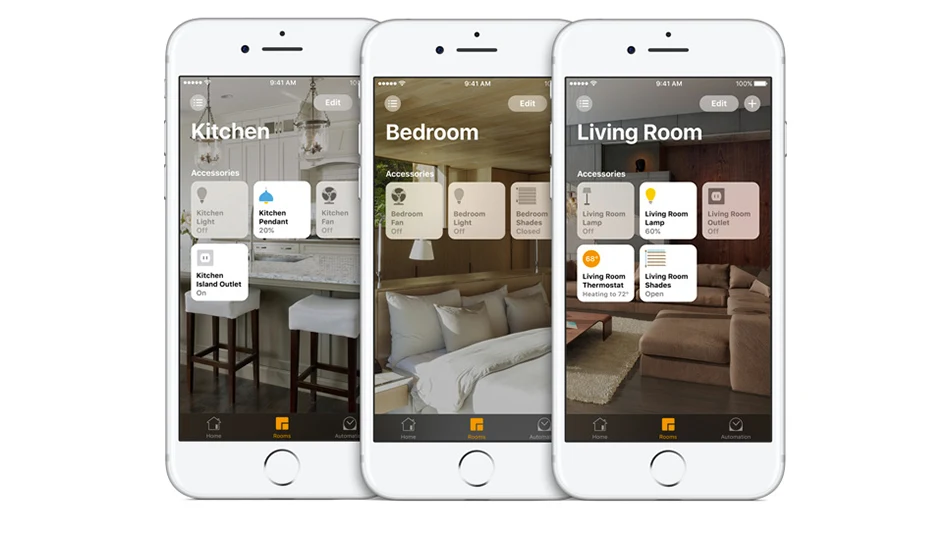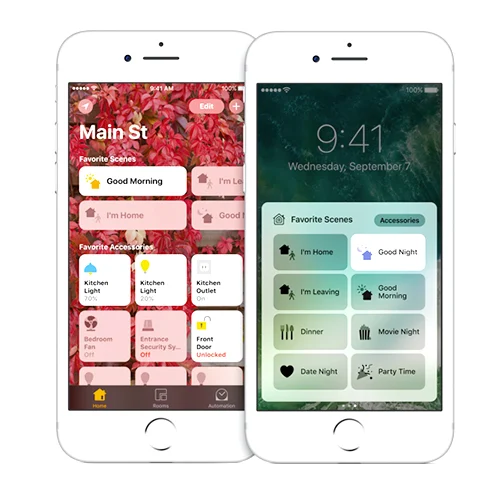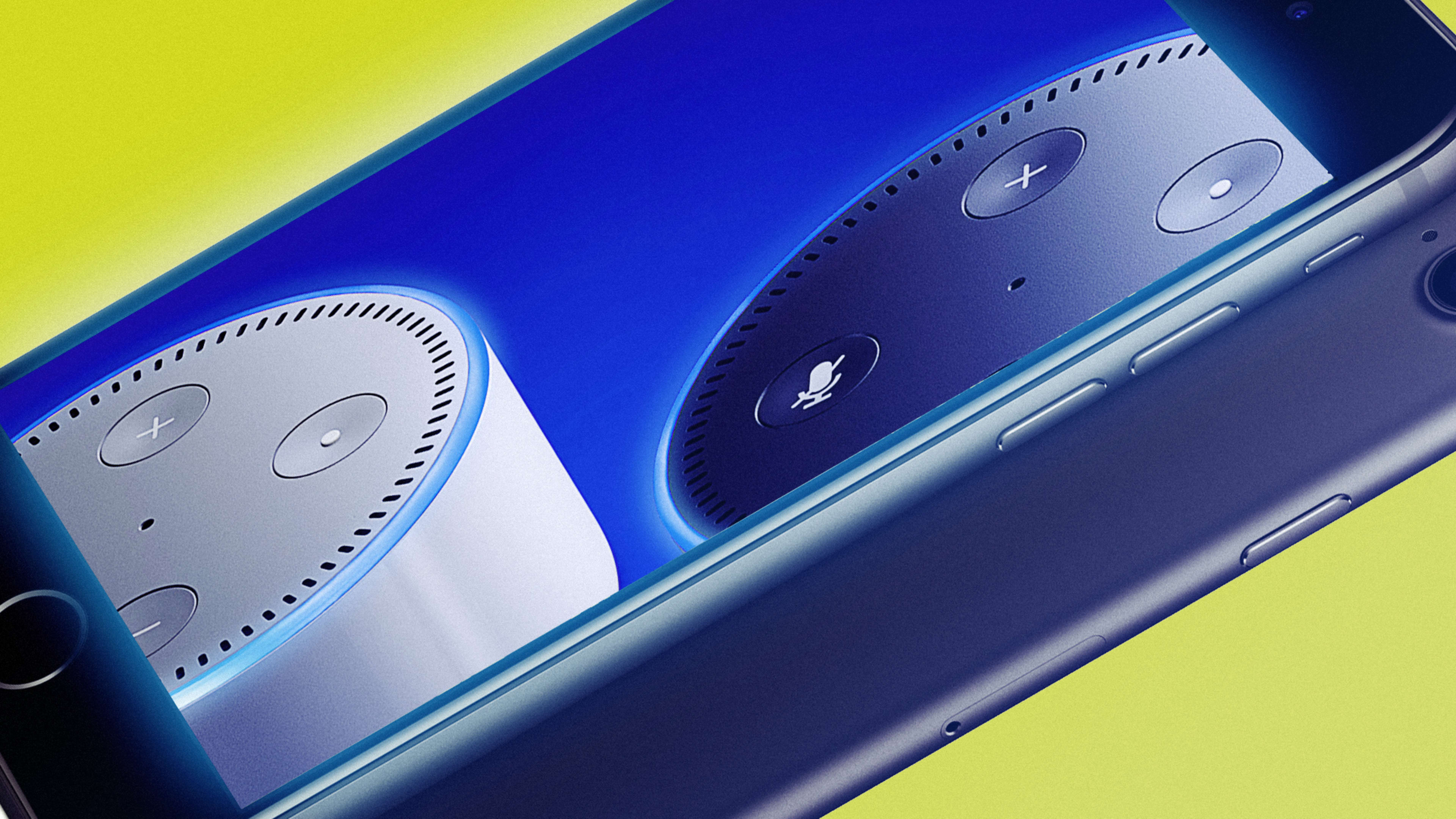Apple is working on an Amazon Echo-like device, says KGI Securities analyst Ming-Chi Kuo, who is one of the most reliable seers when it comes to predicting Apple’s moves, in a report published on Monday. Specifically, Kuo said there is a “over 50%” chance that the new product will be announced at WWDC in early June.
Either way, it seems like a near certainty that Apple is working on such a product. And if Apple releases a smart home device, it’ll be going up against some tough competition in the form of both the Echo and Google Home. And the Amazon Echo, at least, is already deeply entrenched in the market.
To have a real impact on the category, Apple can’t just show up with a me-too device; the whole experience around the device has to be better than Echo and Home. It has to look better, sound better, listen better, and do more things (well) than those competing products.
Kuo suggests in his research note that the Apple product might at least have superior hardware. He says that its device would be “positioned for the high-end market” and cost more than Amazon’s $179 Echo. He says it would have roughly the same computing power as an iPhone 6 or 6S, and would have a high-quality woofer and seven tweeters.
Two and a half years after the debut of the Echo and its voice assistant Alexa, here’s why Apple still has plenty of opportunity to release a product that not only could compete with what Amazon and Google are doing but have serious advantages over them.
https://youtu.be/4nbhfrQfRRE
The Fully Connected Home
A Siri home assistant device might add a crucial missing element to Apple’s version of the connected home. And it could be an especially powerful device because it would be a key user interface for Apple’s powerful HomeKit platform.
As useful as Amazon’s Echo is for controlling a host of Alexa-compatible home devices, Amazon doesn’t offer its own robust central integration platform for connected home devices. To make an Alexa-compatible appliance controllable through Alexa voice commands, the user typically loads the device’s app on their phone, then turns on Alexa voice control from within that app. There’s no one app that controls all Alexa-compatible devices in the home.
With HomeKit, on the other hand, users can control the basic functions of HomeKit-compatible devices using the Home app in iOS. The platform also offers lots of security features for the devices that support it.
But as of today, Apple hasn’t provided an Echo-like front end for the Apple connected home. Users control devices in the home using either the Home app or Siri running on an iPhone, iPad, or Apple TV remote. With an Echo-esque Apple device, users could control their appliances hands-free as they walk around the house or work in the kitchen. They could talk to the device as if addressing another person in the room.
Adding such a capability would make the HomeKit platform that much stronger, and position the prospective new smart home device as a vital part of Apple’s approach to the connected home.

A Managed Experience
Amazon has given developers a lot of freedom in defining how their Alexa “skill” is called up and used. Two different connected lightbulb makers, for example, might take very different approaches to the set of Alexa voice commands that make their products work.
That freedom is one reason so many developers have hurried to add their own skills–over 10,000 so far–to Alexa’s reportoire. But it can also make for an inconsistent and confusing user experience.
Apple has historically taken a less laissez-faire approach to third-party integrations. When the company began allowing third-party app makers to add Siri integration last year, it did so for just a small group of app types, and imposed strong guidelines for the user experience.
The same philosophy would likely apply to Siri interactions between a user and an app running on a new Apple smart home device. The company would likely enforce controls over the ways users could communicate with the apps. It might insist that users be able to use flexible, natural language. For example, Apple might insist on letting users call an Uber in any number of ways, not just one rigid way dictated by the app developer. In fact Apple might accomplish this by letting Siri manage the back and forth on behalf of the developer in the same way it does for third-party iOS apps.
Plug-And-Play Smarts
One of the big selling points of Apple’s HomeKit is that compatible third-party accessories are easy to plug into the platform. Apple provides accessory makers with firmware to bake into their devices so that they already speak the platform’s language when they arrive at the user’s home. The setup process involves the user scanning a code printed on the product with an iPhone camera. That process might become even simpler if the voice of Siri could be heard in the room guiding the user through the process.
Siri running on a smart home device might be used to create new “scenes” on the fly. “Scenes” are sets of appliances in the home that are programmed (using the Home app) to do a certain thing—like turn on and off—at the same time.
Privacy First
Over the past year, users have become more aware of the threat of identity theft in all its forms. With the rise of Echo, people are likely more aware of the privacy implications of having a device sitting in the home constantly listening to what they’re saying. (There’s even been a much-talked-about criminal case where data collected from an Amazon Echo was used as evidence.)
Apple has a clear advantage here. It makes much of its money by selling hardware; its core business does not rely on the collection of user data, a fact the company likes to emphasize. Apple has gone to great lengths to protect user privacy, including a high-profile face-off with the FBI over smartphone data encryption last year.
The same can’t be said for Amazon and Google, Apple’s main competition in the smart home device category. Amazon is an online retailer that relies on data to direct people to the products they’re most likely to buy. And Google’s bread and butter is selling advertising in many different forms, all relying on personal data for targeting purposes.

A Showcase For Siri
Apple likes to jump into categories after others have led the way, especially if it sees a clear opportunity to release something better than everything else. And the smart home device could be such a market. Apple could do more than just show up.
Siri isn’t perfect, but it has impressive aspects and is getting smarter. People who already use Siri might love the idea of her going beyond her usual place inside an iPhone or, more recently, a Mac. They might love talking to her across the room, then hearing her voice respond in high fidelity from the smart home device’s speaker.
A new Apple smart home gadget could be the definitive Siri device for people who have used the service on other Apple hardware. People might get a better taste for the assistant, and they might learn to use more of Siri’s capabilities if conversing with her felt more natural and lifelike. An ambient, natural language device might widen users’ understanding of what Siri can really do.
A Front In The Wider War
Apple, of course, wants iOS to be the operating system for your life, the place you go for all things digital, including communications, entertainment, productivity tools, and a thousand other things. It wants the voice of Siri to be the persona of that OS.
But in the future Apple could have difficulty winning hearts and minds over to its OS if it lacks an ambient speech-centric interface. Home owners are in a position of choosing between various tech platforms from which to control the devices in their homes. The lack of an Echo-like way of doing so could be a deal breaker for some. Which makes Apple entering this product category in some form not just an intriguing possibility but a necessity.
Recognize your brand’s excellence by applying to this year’s Brands That Matter Awards before the early-rate deadline, May 3.
